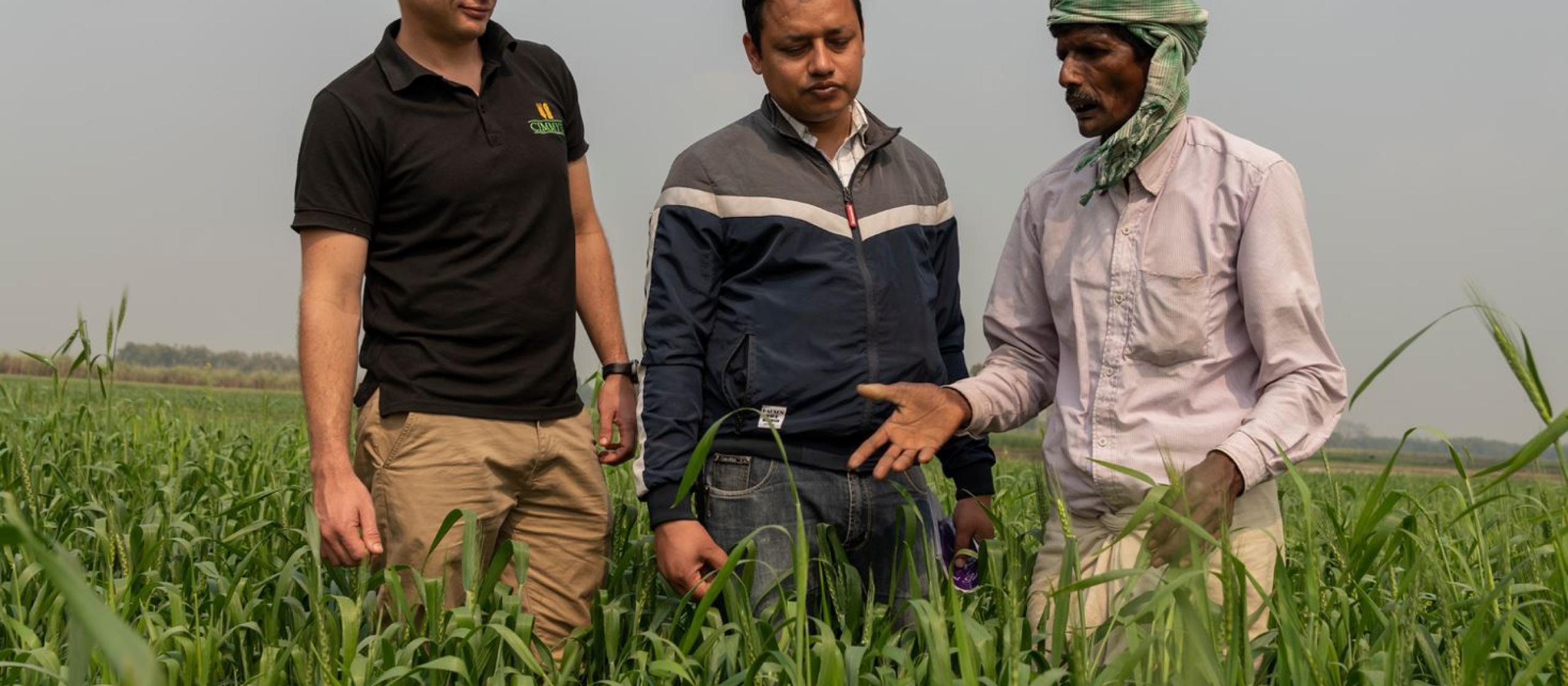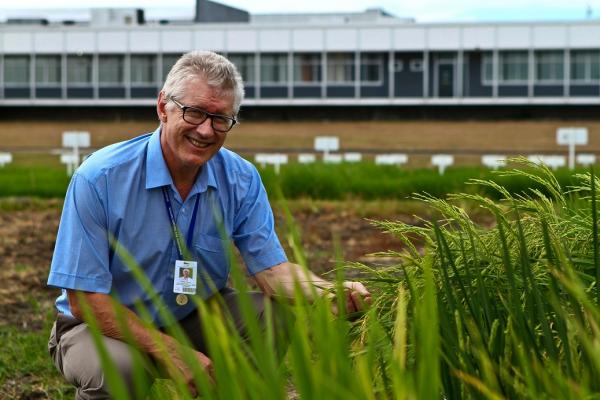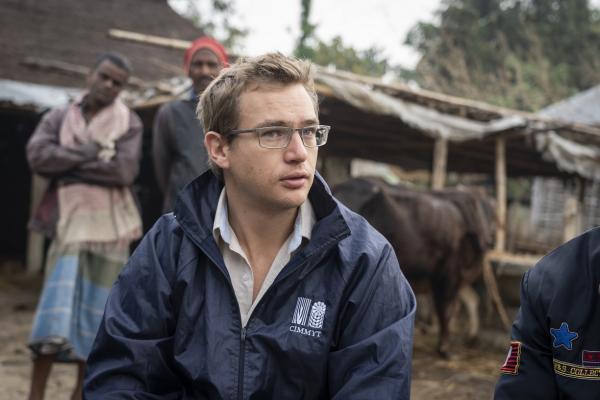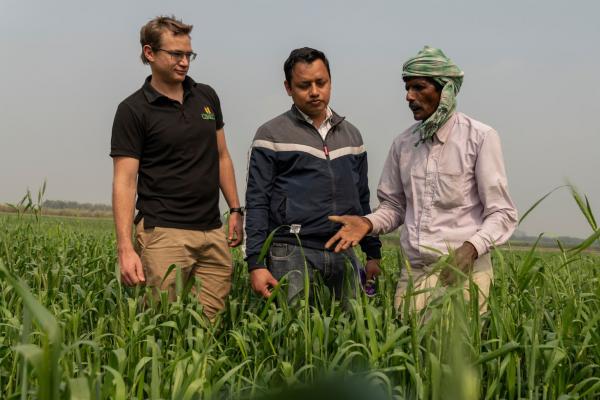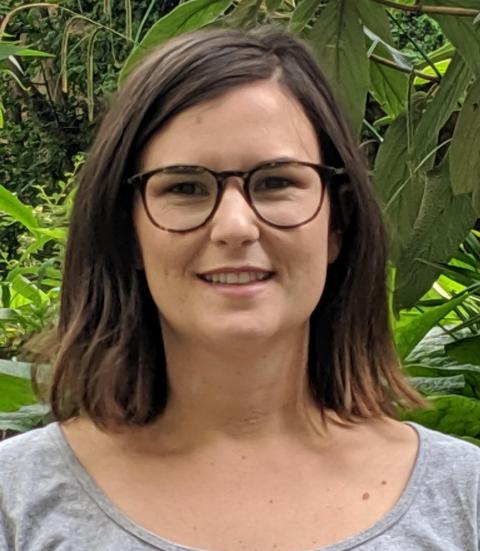- HomeHome
-
About ACIAR
- Our work
- Our people
-
Corporate information
- ACIAR Audit Committee
- Commission for International Agricultural Research
- Policy Advisory Council
- Agency reviews
- Executive remuneration disclosure
- Freedom of information (FOI)
- Gifts and benefits register
- Information publication scheme
- List of new agency files
- Contracts
- Legal services expenditure
- Privacy impact assessment register
- Commonwealth Child Safe Framework
- Benefits to Australia
- Careers
- 40 years of ACIAR
-
What we do
- Programs
- Cross-cutting areas
- Resources
- Where we work
-
Funding
- Research projects
- Fellowships
-
Scholarships
- John Allwright FellowshipScholarships to study in Australia for ACIAR partner country scientists to have Australian postgraduate qualifications
- ACIAR Pacific Agriculture Scholarships and Support and Climate Resilience Program
- Alumni Research Support Facility
- Publications
- News and Outreach
Date released
31 January 2020
Established in 1971, CGIAR brings together 15 international agricultural research centres covering all aspects of primary production from crops to fish to livestock to forestry and spanning a wide range of scientific disciplines and agricultural sectors.
All with the aim to help smallholder farmers in developing countries boost their productivity and improve their livelihoods and consequently global food security.
Australia is among the top ten investors in CGIAR, and many Australians work across the CGIAR system in leadership, governance and research roles. Many Australian scientists also cut their teeth in CGIAR centres, gaining valuable experiences and knowledge.
In this feature we showcase a CGIAR leader and two CGIAR early-career scientists, in a celebration of the partnership.
Dr Matthew Morell: IRRI
In response to his curiosity in agriculture class, a young Matthew Morell’s high school teacher told him, ‘If you want to keep asking questions you really should go to university’.
In recounting the experience, the now Director General of the International Rice Research Institute (IRRI) says it was the first time he was encouraged to go beyond the textbook in his quest to understand things more deeply.
‘I was always interested in science but it seemed to me that agriculture was the application of science to address real-world problems,’ he says. This appealed to him. So, from his high school days in the rural town of Wagga Wagga in Australia, Dr Morell pursued a career in science that would take him first to The University of Sydney to do his undergraduate and PhD degrees in agriculture, and then onwards to the United States to undertake post-doctoral studies.
He returned to Australia to take up an academic position at the Australian National University but was drawn to the opportunity to apply science to deliver practical solutions at Australia’s national science agency—the Commonwealth Scientific and Industrial Research Organisation (CSIRO). There he established himself as a pre-eminent cereal chemist developing and commercialising cereal varieties with improved nutritional features. Then the opportunity to work at IRRI arose and he soon ascended to the position of Director General, based in the Philippines.
As the Director General, Dr Morell is responsible for the functioning of the institute of more than 1000 staff across 17 country offices, the performance of its research program and its strategic direction. But the part of the job that takes up most of his time is working with external stakeholders.
‘We don’t do anything alone, we don’t deliver any of the benefit of what we do alone, so everything’s through partnerships and relationships,’ says Dr Morell. ‘Scientific expertise buys you a ticket to the start of the race but it’s not the thing that decides whether you win the race or not.
‘The combination of the quality of the science, the quality of the partnerships and the relationships, being able to put yourself in the shoes of the beneficiaries and being able to work collaboratively and cooperatively, are very important skills. Being able to communicate what you do, being able to advocate for resources—these are all very important.’
From the small…
Partnerships also form part of the history of IRRI, which was founded on a partnership between the Ford and Rockefeller foundations with support from the Philippine Government in 1960. IRRI cites itself as being the world’s premier research organisation dedicated to reducing poverty and hunger through rice science; improving the health and welfare of rice farmers and consumers; and protecting the rice-growing environment for future generations. IRRI is also one of the founding centres of CGIAR.
One of the projects IRRI is currently undertaking with ACIAR and WorldFish—another CGIAR centre—is to help improve rice-fish systems in Myanmar. The project is exploring opportunities to improve the livelihood, income and nutrition of smallholder farmers in Myanmar by maximising the combined productivity of rice and fish farming.
Dr Morell says there are many benefits of the project. ‘There’s the opportunity for improved nutrition through consumption of fish. There’s livelihood opportunity. There’s a business opportunity—particularly for women farmers. And we see this kind of mixed model providing farmers with resilience in their enterprises in the face of climate change and other pressures.’
… to the big
While Australia plays a role in supporting individual bilateral research projects with centres like IRRI, funding and leadership at the CGIAR system level ensures that support is coordinated and strategic—and the impact of the research and investment is maximised across multiple countries and regions. Dr Morell is also a member of the CGIAR System Management Board, where he helps develop the strategic direction of the entire CGIAR system.
‘Australia’s investments are very important in enabling different kinds of science and delivery but we also need to engage with the Australian Government priorities in terms of types of areas of impact and regional focus,’ he says. He adds that Australia’s role in setting the regional environmental protection agenda and building scientific expertise is also critical.
‘Australia is a powerhouse of agricultural science. There are many deep and enduring scientific connections, whether it’s a connection around staff coming to IRRI, but also IRRI has contributed to the development of a lot of scientific staff who now work in Australia.
‘That’s built a strong connection for both for the future, providing opportunities for scientific contributions that flow both ways.’
Dr Brendan Brown, CIMMYT
A trip across Africa during his university holidays changed Dr Brendan Brown’s dreams of becoming a dairy farmer when he saw the unrealised potential of farming systems there.
‘During that trip I saw the potential for agricultural research to positively impact the livelihoods of a huge proportion of the world’s farmers who are underserviced by the agricultural gains seen in many other locations,’ says Dr Brown.
Now, at 31 and based in Nepal, Dr Brown is working for another CGIAR centre, CIMMYT—the International Maize and Wheat Improvement Center—where he leads a portfolio of ACIAR-funded projects that research and promote the sustainable intensification of agricultural systems across the Eastern Gangetic Plains of South Asia.
‘I’m involved in designing and implementing participatory evaluations of sustainable intensification practices and holistic impact evaluations, facilitating policy dialogues, working on strategy, engagement and donor mobilisation plans, and implementing capacity development around monitoring, evaluation and impact pathway assessment,’ he says.
Following his Bachelor of Science in agriculture at the University of Sydney, he completed his PhD in social science jointly under the University of Adelaide, CSIRO and CIMMYT. He also participated in both the ACIAR graduate and the Australian Youth Ambassadors for Development programs.
His work at CIMMYT started after he presented his research at the centre’s headquarters, and was invited to transfer his methodologies in Africa to South Asia.
‘The opportunity to extend my methods and theoretical frameworks for participatory impact pathway development in a new context and experience a new part of the world was irresistible,’ says Dr Brown.
And the move has clearly paid off, with Dr Brown describing his work with CIMMYT as a very positive experience. ‘For a younger scientist with new ideas, CIMMYT provides an ideal platform for experimental research for impact,’ he says.
Ms Holly Dawson, CIFOR
Holly Dawson’s first job was as a chef. From there her interest in sourcing food ethically started her on a path to her current work in stakeholder management with CIFOR—the Center for International Forestry Research, based in Bogor, Indonesia.
‘I was working with food and started moving into organic restaurants with strong farm-to-food practices,’ says Ms Dawson. ‘I was also worried about climate change; I was seeing the changes and impacts in Australia and abroad and the impacts of our current food sourcing systems.’
This led her to study international relations and public policy at the University of Western Australia and then to work in a range of social and environmental advocacy NGOs, including Greenpeace.
But even then she still had not even heard of CGIAR, let alone CIFOR—a CGIAR centre. It wasn’t until she landed in Bonn, Germany, after she moved there with her partner who had taken up a position with the United Nations Framework Convention on Climate Change (UNFCCC) that she discovered the organisation.
‘I had actually never heard of CIFOR and never imagined how big it was or how many places it worked in,’ she says. But it was right next door to the UNFCCC, and it was looking for switched-on English speakers to work in the climate space and who had an external focus. ‘I fitted the bill with my previous experience,’ she says.
Now Ms Dawson works as a stakeholder liaison and coordinator for the Global Landscapes Forum (GLF)—the world’s largest knowledge-led platform on sustainable land use, dedicated to achieving the Sustainable Development Goals and Paris Climate Agreement.
She describes the GLF as a sharing platform, both online and offline, with a holistic approach to land-use restoration.
Ms Dawson’s food-focused journey shows how CGIAR is looking not just for skilled agricultural researchers but for people with diverse backgrounds and skills. She sums it up: ‘We need to transform our relationship to how we produce our food and manage land. Agriculture research and communicating that research is a massive part of addressing climate change.’
Australia’s investment in CGIAR
Australia has funded CGIAR since its inception in 1971 and, as one of the top 15 funders, has held a seat on its highest governing body, the System Council.
Since its establishment in 1982, ACIAR has managed Australia’s investment, as a key function under the ACIAR Act. CGIAR is the world’s largest global agricultural innovation network, spending around US$1 billion/year. It undertakes agricultural research for development, through 15 research centres that together employ around 9000 scientists, most of whom are located in developing countries.
CGIAR works closely with national and regional research institutes, civil society organisations, academia, development organisations and the private sector.
CGIAR Centres
- Africa Rice Center (AfricaRice), Côte d’Ivoire
- Bioversity International, Italy
- Center for International Forestry Research (CIFOR), Indonesia
- International Center for Tropical Agriculture (CIAT), Colombia
- International Center for Agricultural Research in the Dry Areas (ICARDA), Lebanon
- International Crops Research Institute for the Semi-Arid Tropics (ICRISAT), India
- International Food Policy Research Institute (IFPRI), United States
- International Institute of Tropical Agriculture (IITA), Nigeria
- International Livestock Research Institute (ILRI), Kenya
- International Maize and Wheat Improvement Center (CIMMYT), Mexico
- International Potato Center (CIP), Peru
- International Rice Research Institute (IRRI), Philippines
- International Water Management Institute (IWMI), Sri Lanka
- World Agroforestry Centre (ICRAF), Kenya
- WorldFish Center, Malaysia
Australians in leadership positions across CGIAR
Many Australians work across the CGIAR system—as scientists, students and in other professions. Of particular note are the Australians working in senior leadership positions as members and chairs of CGIAR centre boards and as director generals of CGIAR centres, and on the CGIAR Systems Council:
- Professor Kaye E Basford, Professor in Biometry at University of Queensland, is the Vice Chair of the Board of Trustees for IRRI
- Nicole Birrell, Director of Victorian Plantation Corporation, is the Chair of the Board of Trustees for CIMMYT
- Derek Byerlee, Adjunct Professor in the Global Human Development Program in the School of Foreign Services at Georgetown University, is a Board Member for IFPRI
- Professor Andrew Campbell, ACIAR CEO, represents Australia on the CGIAR Systems Council
- Dr Peter Carberry, Director General of ICRISAT
- Professor Lindsay Falvey, Professor at University of Melbourne, is the Chair of the Board of Trustees for ILRI
- Professor Tony Haymet, Vice Chair of the Board for WorldFish Center
- Matthew Morell, Director General of IRRI and member of the CGIAR System Management Board
- Professor Wendy Umberger, Executive Director of Centre for Global Food and Resources at University of Adelaide, is a Board Member for ICRISAT
